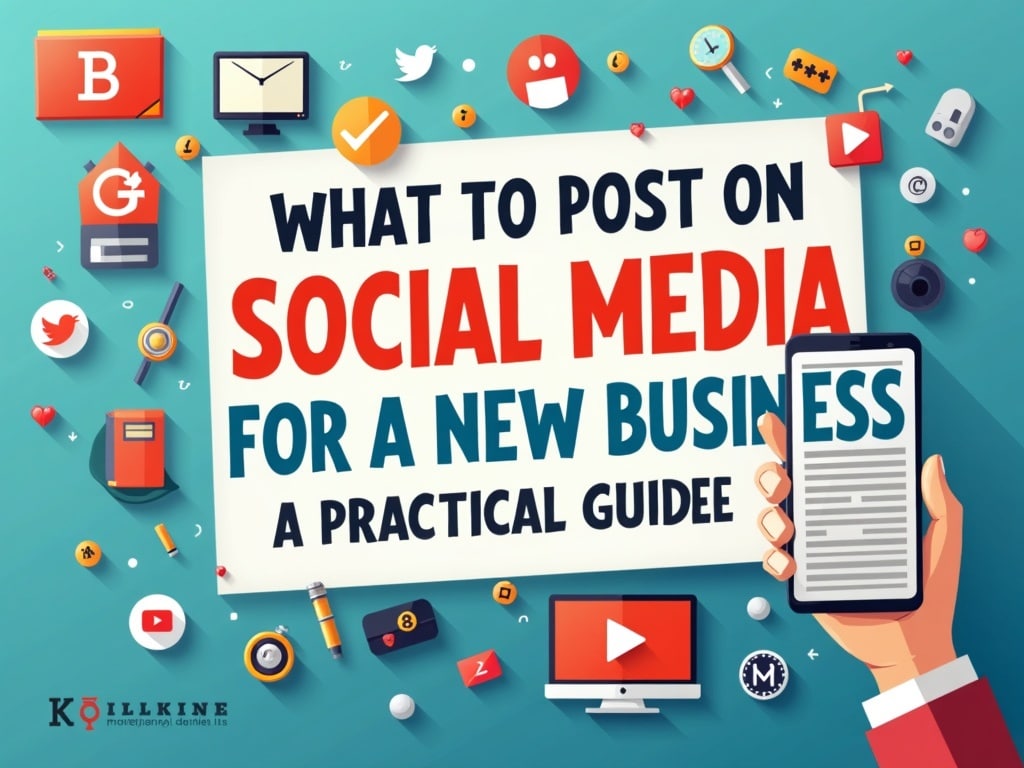Marketing Overwhelm: What To Do When You're Drowning in Options
Remember the last time you felt truly excited about your marketing? Maybe it was when you launched your first website, crafted a brilliant social media post, or watched a clever ad campaign unfold. Now, contrast that with the feeling of standing at the foot of Mount Marketing, a towering peak of ever-changing platforms, complex strategies, and endless must-do tasks. That, my friend, is marketing overwhelm, and it's a very real problem for businesses of all sizes.
Marketing overwhelm isn't just feeling busy; it's a paralyzing sensation that chokes creativity, drains productivity, and ultimately, sabotages your marketing efforts. But don't despair! This article provides a lifeline, offering practical strategies to navigate the turbulent waters and regain control of your marketing destiny.
Understanding the Roots of Marketing Overwhelm
Before you can combat the overwhelm, it's crucial to understand what's causing it. Several factors often contribute:
- The Ever-Changing Landscape: Marketing technology is a runaway train. A new social media platform, a cutting-edge SEO tactic, or a revolutionary advertising tool seems to launch every other week. Trying to keep up with everything is a recipe for burnout.
- Shiny Object Syndrome: The allure of new strategies and platforms can distract you from proven methods. Jumping from one tactic to another without giving anything enough time to work is a common symptom.
- Lack of a Clear Strategy: Without a well-defined marketing strategy, you're essentially throwing spaghetti at the wall. Random acts of marketing rarely yield significant results and contribute to a feeling of being lost.
- Trying to Do It All: Many businesses, especially startups and small businesses, try to handle all aspects of marketing in-house. This often leads to spreading resources too thin, resulting in mediocre performance across the board.
- Data Deluge: The sheer volume of data available can be overwhelming. Analyzing metrics from multiple platforms, deciphering reports, and drawing actionable insights can feel like an impossible task.
Immediate Actions to Calm the Chaos
When you're in the throes of overwhelm, it's essential to take immediate steps to regain control. These quick wins can provide a sense of accomplishment and pave the way for a more strategic approach.
1. Stop Adding New Tasks
This might seem counterintuitive, but it's crucial. Before considering any new marketing initiatives, put a freeze on all additions. Focus on streamlining what you already have in place. No new platforms, no new strategies – just a temporary pause to assess and simplify.
2. Prioritize Ruthlessly
Not all marketing activities are created equal. Identify the 20% of your efforts that generate 80% of your results (the Pareto Principle). Focus your energy on those high-impact activities and delegate or eliminate the rest. Consider these questions: Which channels drive the most qualified leads? Which content resonates most with your audience? Which activities align best with your business goals?
3. Time Blocking and Batching
Allocate specific blocks of time for marketing tasks. For example, designate Monday mornings for social media scheduling, Wednesday afternoons for email marketing, and Friday mornings for content creation. Batch similar tasks together to minimize context switching and improve efficiency. Switching between different types of work drains mental energy.
4. Unplug and Recharge
Step away from your computer, silence notifications, and take a break. Go for a walk, listen to music, or spend time with loved ones. A mental reset can do wonders for clearing your head and restoring focus. Consider techniques like mindfulness or meditation to manage stress and improve concentration. Regular breaks are essential for preventing burnout and maintaining productivity.
Developing a Strategic Marketing Framework
The long-term solution to marketing overwhelm lies in developing a clear, strategic framework. This framework will act as your compass, guiding your decisions and preventing you from getting lost in the weeds.
1. Define Your Target Audience (Again!)
It's easy to lose sight of your ideal customer amidst the noise of marketing. Revisit your buyer personas. Understand their needs, pain points, and aspirations. Knowing who you're trying to reach will help you focus your messaging and channel selection.
2. Set Realistic Goals and KPIs
Avoid setting vague, aspirational goals like increase brand awareness. Instead, define specific, measurable, achievable, relevant, and time-bound (SMART) goals. Key Performance Indicators (KPIs) should be directly tied to your business objectives. Examples include website traffic, lead generation, conversion rates, and customer acquisition cost.
3. Choose Your Channels Wisely
You don't need to be everywhere. Select the marketing channels where your target audience spends their time and focus your efforts on mastering those channels. It's better to excel in a few key areas than to spread yourself thin across multiple platforms.
4. Create a Content Calendar
Plan your content in advance to avoid last-minute scrambles. Develop a content calendar that outlines the topics, formats, and publishing dates for your blog posts, social media updates, email newsletters, and other marketing materials. This proactive approach reduces stress and ensures consistent messaging.
5. Automate Where Possible
Leverage marketing automation tools to streamline repetitive tasks. Automate email marketing campaigns, social media scheduling, lead nurturing, and other processes to free up your time for more strategic activities. Explore tools like Mailchimp, HubSpot, Buffer, and Hootsuite to discover automation opportunities.
Delegation and Outsourcing: Knowing When to Ask for Help
Recognize your limitations. If marketing isn't your area of expertise or you're simply overwhelmed by the workload, consider delegating or outsourcing certain tasks. This could involve hiring a marketing agency, a freelance specialist, or a virtual assistant. The key is to identify tasks that can be effectively handled by someone else, freeing you up to focus on your core competencies.
What to Delegate
- Social Media Management: Scheduling posts, engaging with followers, and running social media ads.
- Content Creation: Writing blog posts, creating videos, designing infographics, and developing other marketing materials.
- SEO: Conducting keyword research, optimizing website content, and building backlinks.
- Email Marketing: Designing email templates, writing email copy, and managing email lists.
- PPC Advertising: Creating and managing pay-per-click ad campaigns on platforms like Google Ads and social media.
Embracing Good Enough and Avoiding Perfectionism
Perfectionism is a major contributor to marketing overwhelm. The pursuit of flawless campaigns and impeccable content can lead to analysis paralysis and missed opportunities. Sometimes, good enough is truly good enough. Focus on delivering valuable content and consistent engagement, rather than striving for unattainable perfection.
Tracking and Measuring: Data-Driven Decisions
Don't let data overwhelm you; use it to your advantage. Regularly track your KPIs and analyze your results. Identify what's working and what's not. Use data-driven insights to refine your strategies and optimize your campaigns. Focus on the metrics that matter most to your business goals, and don't get bogged down in vanity metrics.
The Mindset Shift: From Overwhelm to Empowerment
Overcoming marketing overwhelm requires more than just practical strategies; it also requires a mindset shift. Embrace a growth mindset, view challenges as opportunities, and celebrate small wins. Remember that marketing is a journey, not a destination. There will be ups and downs, but by staying focused, strategic, and adaptable, you can navigate the complexities of the marketing landscape and achieve your business goals. Be patient with yourself, learn from your mistakes, and never stop experimenting.
Final Thoughts: Your Marketing, Your Way
Marketing overwhelm doesn't have to be your constant companion. By understanding its roots, implementing practical strategies, and embracing a strategic framework, you can regain control and transform your marketing from a source of stress into a powerful engine for growth. Remember, you don't have to do it all. Focus on what matters most, delegate when necessary, and never be afraid to ask for help. Your marketing journey is unique, and your approach should reflect that. So, take a deep breath, prioritize strategically, and start building a marketing plan that works for you.





